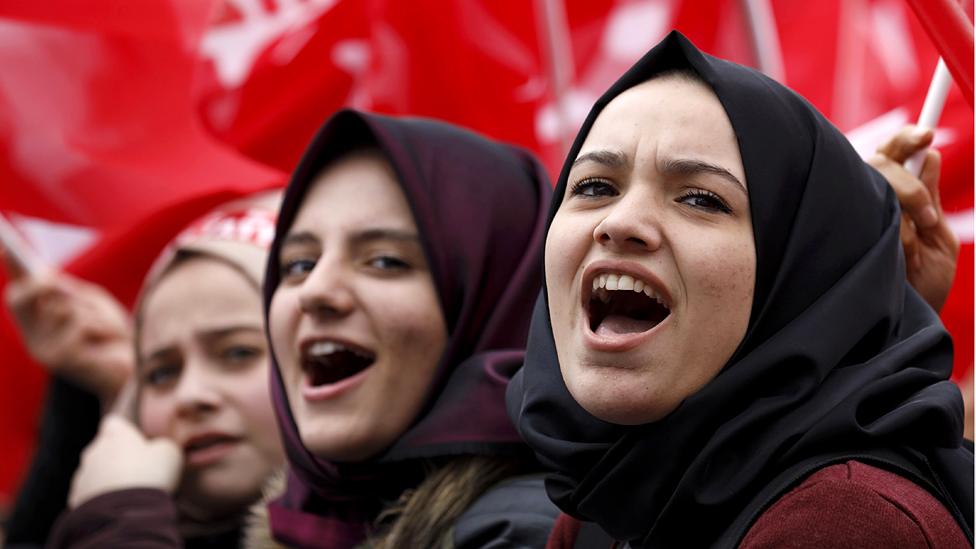Turkey referendum: Trump congratulates Erdogan
- Published
Turkish referendum in three words
Donald Trump has congratulated Turkish President Recep Tayyip Erdogan on his victory in Sunday's referendum that gave him sweeping new powers.
The US president's phone call contrasts with European concern that the result - 51.4% in favour of the changes - has exposed deep splits in Turkish society.
Mr Erdogan has rejected criticism from international monitors who said he had been favoured by an "unequal campaign".
The main opposition party is launching an appeal to invalidate the result.
The changes - due to be introduced before presidential and parliamentary elections in November 2019 - will turn Turkey into a presidential republic similar to the US and France. This could enable President Erdogan to stay in power until 2029.
More on the outcome:
His narrow victory was ruled valid by Turkey's electoral body, despite claims of irregularities by the opposition.
On Monday, Turkey extended the state of emergency for three months. The measure, introduced after a failed coup last July, was set to expire in two days.

Is Trump support a boost for Erdogan? Mark Lowen, BBC News, Istanbul
The call from Donald Trump was pre-arranged and the focus was Syria - but the congratulations for President Erdogan's victory means the US president joins leaders from Qatar, Guinea, Djibouti and the Palestinian militant movement Hamas to voice the opinion, while those in Europe have been far more cautious.
It will delight Erdogan supporters, who will see it as legitimising the president's victory. But it will dismay opponents, after Mr Erdogan's fiery tirades against the West and the damning verdict of international observers.
It also exposes a split between the EU and US on Turkey: Mr Trump opting for realpolitik while Europe urges the unpredictable Turkish leader to reconcile a divided country.
And it will reiterate similarities between Presidents Trump and Erdogan on issues like democratic norms and press freedom - though the Turkish president has of course dealt with them in a far more extreme way.
Ultimately, President Trump was perhaps aiming to win favour in Ankara, given that the two sides have fundamental disagreements over Syria.

What are the disagreements about?
Syria is one of the issues straining relations between Washington and Ankara.
Turkey is irked by the policy started by the Obama administration of supporting Kurdish fighters in Syria who are fighting so-called Islamic State.
Turkey views the Syrian Kurdish People's Protection Units (YPG) as a terror group linked to Kurdish separatists waging an insurgency inside Turkey since 1984.
Turkey - a key Nato ally - has established closer co-operation with Russia recently.
The two sides are also at loggerheads over Fethullah Gulen. Turkey accuses the Pennsylvania-based cleric of orchestrating the failed coup and wants him extradited.
Officially Washington insists any decision on returning him to Turkey from the US remains a judicial rather than a political one.
What have European leaders said?
Mr Trump's comments contrasted with a statement by the US state department which mentioned concerns by international observers and urged Turkey to respect the rights of its citizens - chiming with sentiment in European capitals.
German Chancellor Angela Merkel warned that the "tight referendum result shows how deeply divided Turkish society is and that means a big responsibility for the Turkish leadership and for President Erdogan personally".
The European Commission, external issued a similar call.
Others expressed concern about the possibility of the return of capital punishment.
The French president's office warned that any referendum on reviving the death penalty would "obviously be a break with values and engagements" that Turkey had accepted in joining the Council of Europe. The president of the European Parliament, Antonio Tajani, tweeted his own concerns.

Austrian Foreign Minister Sebastian Kurz went further. He said the referendum result was a "clear signal against the European Union". The "fiction" of Turkey's bid to join the bloc must be ended, Mr Kurz said.
Why are international monitors concerned?
Despite saying that the voting day was "well administered", the Organization for Security and Co-operation in Europe (OSCE) and the Council of Europe criticised the referendum campaign, external, and the Council of Europe said the vote "did not live up" its standards.
The monitors also criticised a late change by electoral officials that allowed voting papers without official stamps to be counted. But the head of Turkey's electoral body, Sadi Guven, said the unstamped ballot papers had been produced by the High Electoral Board and were valid. He said a similar procedure had been used in past elections.
But the Turkish Bar Association described the move as "illegal".
And Austrian MP Alev Korun - one of the Council of Europe observers - said "there is a suspicion that up to 2.5 million votes could have been manipulated" - which would have changed the result. She offered no evidence.
What did the president say about the result?

Mr Erdogan told supporters that Turkey did not "see, hear or acknowledge the politically motivated reports" of the monitors.
The result, he said, ended the debate on changing the constitution and creating an executive presidency, adding that the process of implementing the reforms would now begin.
Read more: Erdogan's rise to power
He also said the country could hold a referendum on its long-stalled EU membership bid.
Additionally, Mr Erdogan said he would approve the death penalty if it was supported in a referendum or a bill was submitted to him through parliament. This would end Turkey's EU negotiations.
What do the constitutional changes include?
The president will have a five-year tenure, for a maximum of two terms
The president will be able to directly appoint top public officials, including ministers and one or several vice-presidents
The job of prime minister will be scrapped
The president will have power to intervene in the judiciary, which Mr Erdogan has accused of being influenced by Fethullah Gulen, the Pennsylvania-based preacher he blames for the failed coup in July
The president will decide whether or not to impose a state of emergency
- Published18 April 2017
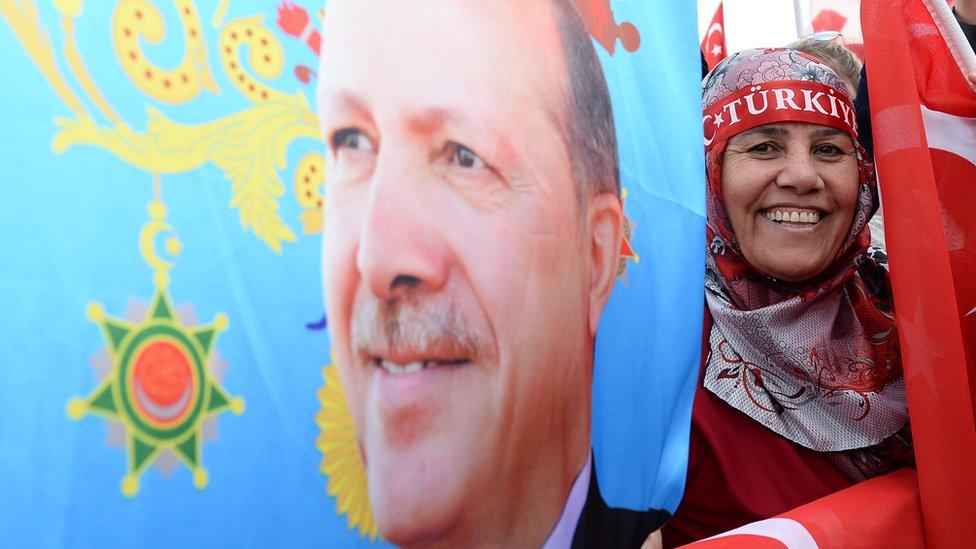
- Published17 April 2017
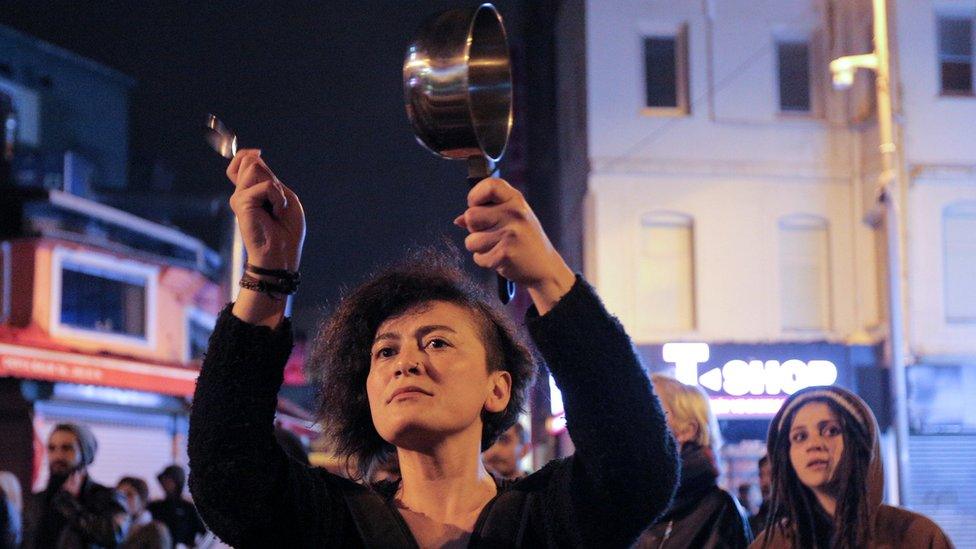
- Published17 April 2017
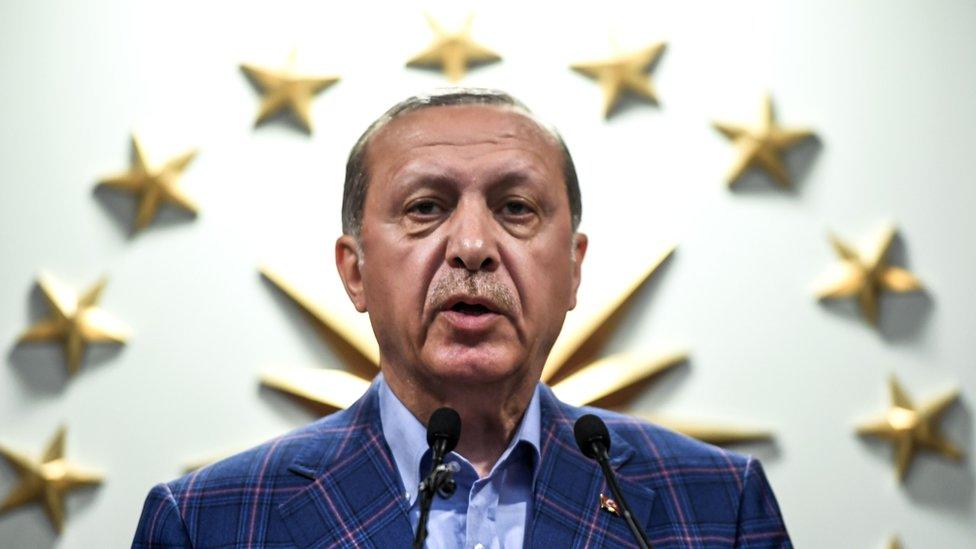
- Published16 April 2017
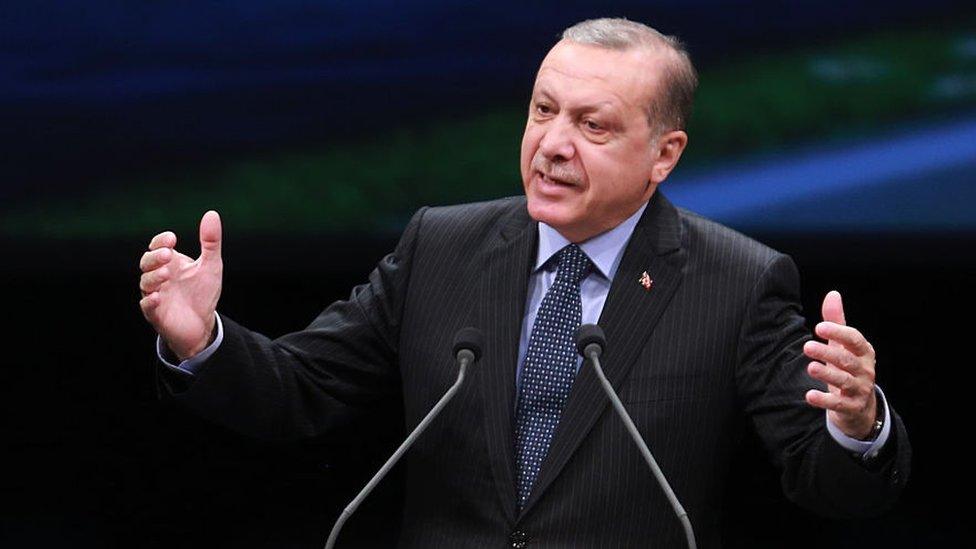
- Published11 April 2017
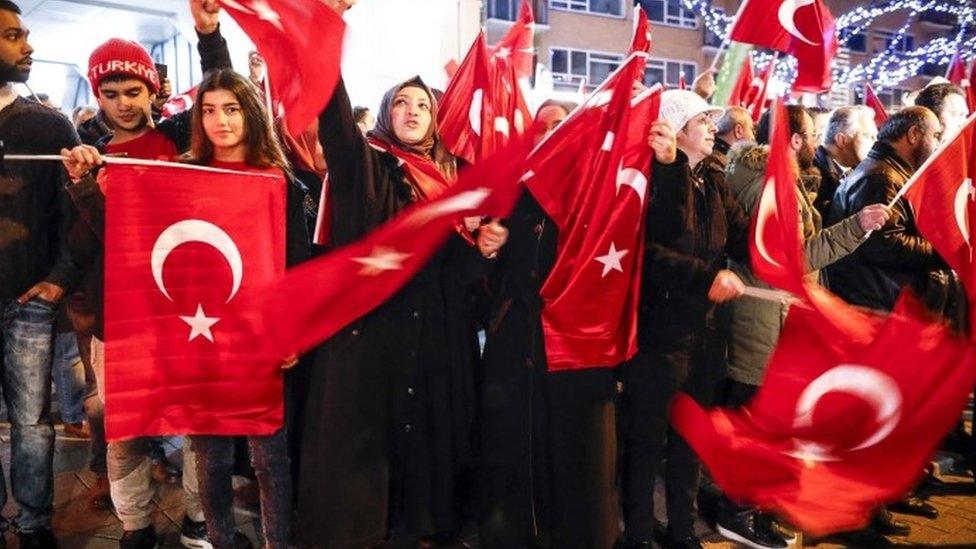
- Published24 March
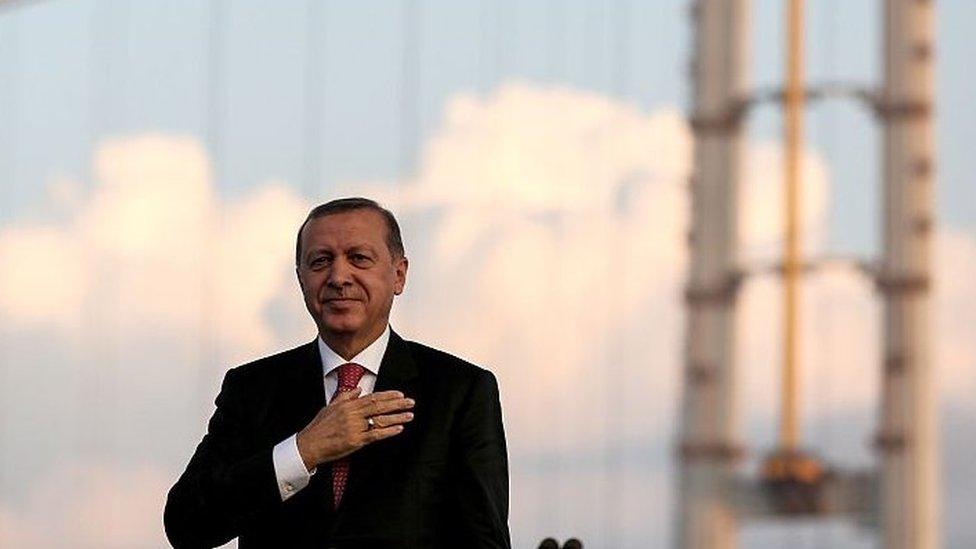
- Published30 March 2017
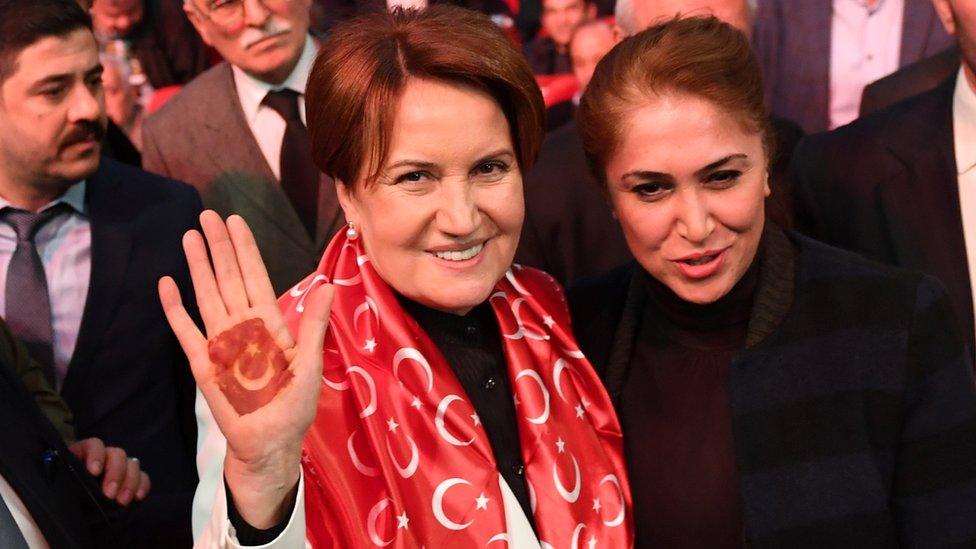
- Published13 April 2017
